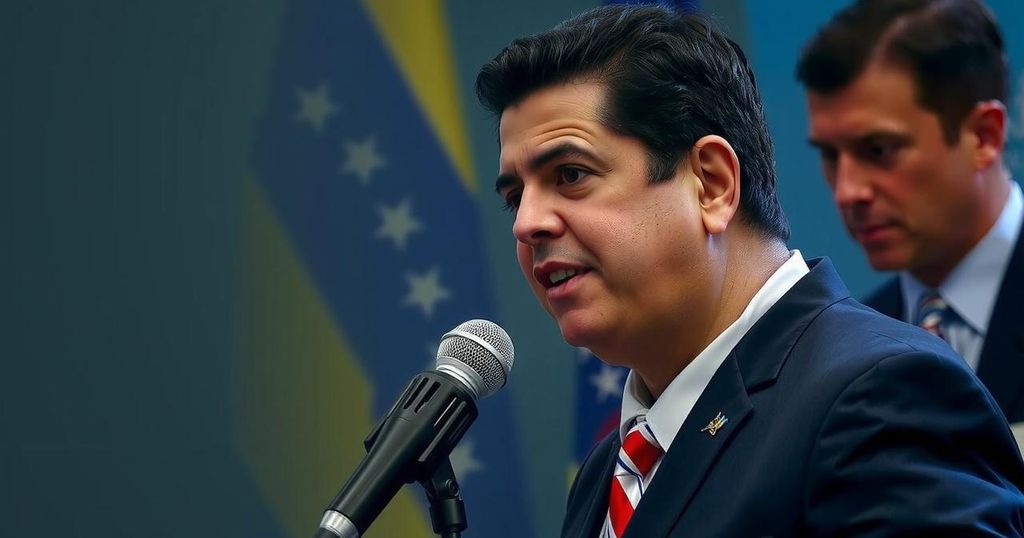The U.S. has sanctioned over 20 officials associated with Venezuelan President Maduro, aiming to pressure his government to accept the July election results. Notable sanctions target high-ranking military and government officials, coinciding with the U.S. recognition of opposition leader Edmundo Gonzalez as president-elect. These efforts reflect a broader strategy to promote democracy in Venezuela amid ongoing political turmoil.
The United States has imposed new sanctions on over 20 officials connected to Venezuelan President Nicolas Maduro in an effort to pressure him into recognizing the results of the contested July presidential election. Senior administration officials expressed optimism that these sanctions could lead to a fracture within the Maduro administration and spark a democratic transition in Venezuela. The sanctions specifically target military leaders from the Bolivarian National Guard and the Bolivarian National Police, among others. Key individuals sanctioned include Maduro’s chief of staff Anibal Coronado, Communication Minister Freddy Ñañez, and intelligence services director Alexis Rodriguez.
This sanction announcement follows the U.S. recognition of opposition leader Edmundo Gonzalez as the legitimate president-elect as declared by the Venezuelan populace during the July elections. Secretary of State Antony Blinken emphasized the need to respect the democratic will expressed by voters during this period of political tumult in a recent statement. Although widespread oil sanctions remain effective, certain allowances for U.S. companies like Chevron to conduct operations in Venezuela will be continuously evaluated.
U.S. officials highlighted that the sanctions form part of the Biden administration’s commitment to fostering democratic governance in Venezuela and holding the current regime accountable for its actions, including political repression. They acknowledged potential shifts in policy could occur with the incoming administration after January 20, 2025.
Historically, most members of Maduro’s cabinet have faced U.S. sanctions since the Venezuelan crisis began in 2017. Furthermore, Maduro himself has been sanctioned since July 31, 2017, and faces drug trafficking and terrorism charges in the United States, with a significant reward offered for information leading to his capture.
The sanctions on Venezuelan officials by the United States stem from an ongoing effort to pressure the Maduro regime into accepting the outcomes of democratic processes, especially following questionable election results. The July 2023 election was marred by allegations of electoral fraud, prompting international scrutiny and disapproval. The U.S. has consistently supported the Venezuelan opposition, seeking to bolster their claim to legitimacy and democratic governance. Historical actions against Maduro and his administration reflect a broader strategy to instate political accountability and promote adherence to democratic norms in Venezuela, aligning with the U.S. foreign policy goals in Latin America.
In summary, the recent sanctions imposed by the United States on Maduro-aligned officials aim to encourage the acceptance of the democratic election results in Venezuela. By targeting key figures within the security and military apparatus, the U.S. seeks to create fractures within the Maduro government. This action reiterates the commitment of the Biden administration to uphold democratic principles in Venezuela, as the repercussions of its foreign policy decisions continue to unfold within the region.
Original Source: www.cnn.com






